What is postpartum?
The postpartum phase—sometimes called the “fourth trimester”—is the period after giving birth when your body and mind begin to recover and adjust to life with your new baby. The first three months are a critical time of healing and transition, but postpartum care extends well beyond those early weeks as you set the stage for good mental and physical health.
Your Baylor Scott & White OBGYN is your partner throughout this phase and can offer the comprehensive support and care you and your baby need.
Postpartum symptoms
Whether you had a vaginal birth or a cesarean section (C-section), your body needs time to recover after having a baby. Recovery can take six to eight weeks, but it may take a few months for your body to feel like it’s back to normal. Symptoms may be physical, emotional or a combination of both.
Physical symptoms
As your body heals, you may experience the following symptoms.
- Afterpains: Abdominal pain, called afterpains, occurs as your uterus returns to normal size, often intensifying during breastfeeding. Heat can help relieve discomfort.
- Constipation: Hormonal changes, medications and anesthesia can cause constipation. Drink water, eat fiber-rich foods and consult your doctor if you haven't had a bowel movement by day four postpartum.
- Hair loss: Postpartum hair loss, caused by falling estrogen levels, usually starts three to four months after birth and resolves within 6–12 months. Avoid tight hairstyles and heavy hair products to reduce shedding.
- Hemorrhoids: Hemorrhoids from pregnancy or pushing during delivery may cause pain and bleeding. They typically shrink over time, and fiber, water and over-the-counter creams can help.
- Perineal soreness: Soreness in the perineum from tearing or an episiotomy can last a few weeks. Use ice packs, warm rinses and avoid long periods of sitting or standing for relief.
- Postpartum swelling (edema): Swelling in your legs and feet is common due to water retention, lasting about a week. Elevating your feet can help.
- Lochia (vaginal bleeding): Lochia, or postpartum bleeding, lasts up to six weeks. Use pads, not tampons, and contact your doctor if you pass clots larger than a quarter.
Emotional
After having a baby, your hormones are in flux, and you’re likely feeling tired and a little overwhelmed. All these feelings are normal. As you adjust to life with your infant, pay as much attention to your mental health as your physical health, and talk to your OBGYN if mental health concerns interfere with your ability to care for or bond with your baby.
Mental health conditions occur in about 20% of women during or after pregnancy. These conditions include postpartum anxiety, post-traumatic stress disorder, obsessive-compulsive disorder and a rare condition called postpartum psychosis.
- Baby blues: After childbirth, up to 80% of new parents experience the "baby blues" due to changing hormone levels and adjusting to life with a newborn. You may feel sad, have mood swings, trouble sleeping or cry a lot. These feelings usually start a few days after birth and last up to two weeks. Talking to family and friends can help, and no specific treatment is usually needed. However, if these feelings last longer or make it hard to care for your baby, speak with your OBGYN to check for postpartum depression.
- Postpartum depression: This is more severe than the baby blues and can happen anytime during the first year after childbirth. Symptoms include sadness, irritability, low energy, physical aches and feeling disconnected from your baby. It can affect your relationship with your baby and their development. Treatment, like therapy and medication, is available, so reach out to your healthcare provider if you're struggling.
- Postpartum anxiety: Excessive worry after having a baby, sometimes paired with physical symptoms like loss of sleep or heart palpitations, is known as postpartum anxiety. It often occurs alongside postpartum depression. Treatment may include medication or therapy.
- Weight loss: After giving birth, you'll lose 6 to 12 pounds, but losing the rest of your baby weight may take a few months. Breastfeeding can help burn calories but don't rush to lose weight too fast, as it may affect your milk supply. If you're breastfeeding, wait until your baby is about two months old before focusing on weight loss. Even then, you'll still need around 500 extra calories a day, so focus on healthy foods like fruits, vegetables, whole grains and lean protein.
Virtual postpartum care
Get access to six months of online care and support to help you and your new baby get a healthy start. Our Postpartum Care program connects you with a dedicated nurse care advocate who provides guidance and resources and can help you access lactation consultants, pelvic floor physical therapists, mental health support and more.
Postpartum recovery
One of the most important things you can do for yourself after giving birth is to allow yourself time to rest and heal. While this may be easier said than done, getting rest allows your body and mind time to recover. Ask for help when you need it. This could mean limiting visitors, asking for help with childcare or asking for help with tasks like cleaning and making meals.
Other than resting, some of the other ways to take care of yourself in the weeks after delivery could involve:
- Nutrition: Try to drink lots of water and eat healthy foods like lean protein, fruit, vegetables and whole grains. Staying hydrated can also help with constipation.
- Caring for your perineal area: If you had a vaginal delivery, you may be sore for a few weeks. Your provider probably gave you some tips to help care for your bottom at home. Using a peri bottle with warm water to rinse after using the bathroom and using witch hazel pads are ways to help your bottom feel better.
- Limiting physical activity: While you may want to return to your pre-pregnancy size, don’t rush to exercise or get back in shape. Your healthcare provider will let you know when it’s safe to exercise. Most people can begin walking or doing gentle movements a few days after giving birth. People who had a C-section birth may need to wait longer. Once you’re able to exercise, begin slowly so you don’t accidentally injure yourself.
- Mental health support: Don’t be afraid to ask for help and be patient with your emotions. The postpartum period can be challenging in so many ways. If you feel sad, overwhelmed, anxious or stressed, talk to your partner, a friend or your healthcare provider about it. There are many resources available to support you.
Postpartum checkups
Your postpartum checkups give you and your OBGYN a chance to discuss physical and emotional symptoms, concerns and questions you have as you recover from childbirth. These visits also allow your OBGYN to monitor health conditions that developed during or shortly after pregnancy to ensure those conditions are managed well.
If you had high blood pressure during pregnancy, you may be seen in the first 48 - 72 hours after discharge, then at two weeks and six weeks postpartum. Otherwise, your first visit should be within three weeks after birth.
Stay on top of these postpartum visits and go even if you feel fine. Your OBGYN can offer valuable tips and advice about weight management, mental health, sexual health and many other concerns.
Find a location near you
You can find comprehensive postpartum care at Baylor Scott & White locations throughout North and Central Texas. If you experience mental health, breastfeeding or other parenting challenges, your OBGYN can refer you to a specialist or support service that meets your needs.

Baylor Scott & White Medical Center - McKinney
5252 W University Dr Highway 380 at Lake Forest Drive, McKinney, TX, 75071

Baylor Scott & White Obstetrics & Gynecology - Rockwall
1005 W Ralph Hall Pkwy Ste 115, Rockwall, TX, 75032
- Monday: 8:00 am - 5:00 pm
- Tuesday: 8:00 am - 5:00 pm
- Wednesday: 8:00 am - 5:00 pm
- Thursday: 8:00 am - 5:00 pm
- Friday: 8:00 am - 5:00 pm

Baylor Scott & White Obstetrics & Gynecology - Rowlett
9500 Lakeview Pkwy Ste 100, Rowlett, TX, 75088
- Monday: 8:00 am - 5:00 pm
- Tuesday: 8:00 am - 5:00 pm
- Wednesday: 8:00 am - 5:00 pm
- Thursday: 8:00 am - 5:00 pm
- Friday: 8:00 am - 5:00 pm

Baylor Scott & White Medical Center - Lake Pointe
6800 Scenic Dr , Rowlett, TX, 75088

Baylor Scott & White Obstetrics & Gynecology - Frisco at PGA Parkway
16050 Everwell Ln Professional Pavilion I, Ste 200, Frisco, TX, 75033
- Monday: 8:00 am - 4:45 pm
- Tuesday: 8:00 am - 4:45 pm
- Wednesday: 8:00 am - 4:45 pm
- Thursday: 8:00 am - 4:45 pm
- Friday: 8:00 am - 4:30 pm

Baylor Scott & White Medical Center - Frisco at PGA Parkway
7600 Better Way , Frisco, TX, 75033

Baylor Scott & White Obstetrics & Gynecology - Frisco
4461 Coit Rd Ste 205, Frisco, TX, 75035
- Monday: 8:00 am - 4:45 pm
- Tuesday: 8:00 am - 4:45 pm
- Wednesday: 8:00 am - 4:45 pm
- Thursday: 8:00 am - 4:45 pm
- Friday: 8:00 am - 4:30 pm

Baylor Scott & White Medical Center - Centennial
12505 Lebanon Rd , Frisco, TX, 75035

Baylor Scott & White Surgicare - Garland
530 Clara Barton Blvd Ste 100, Garland, TX, 75042
- Monday: 6:00 am - 5:00 pm
- Tuesday: 6:00 am - 5:00 pm
- Wednesday: 6:00 am - 5:00 pm
- Thursday: 6:00 am - 5:00 pm
- Friday: 6:00 am - 5:00 pm

Baylor Scott & White Medical Center - Frisco
5601 Warren Pkwy , Frisco, TX, 75034

Baylor Scott & White Medical Center - Plano
4700 Alliance Blvd , Plano, TX, 75093

Baylor Scott & White Park Lane OB/GYN Associates
9101 N Central Expy Ste 250, Dallas, TX, 75231
- Monday: 8:00 am - 4:30 pm
- Tuesday: 8:00 am - 4:30 pm
- Wednesday: 8:00 am - 4:30 pm
- Thursday: 8:00 am - 4:30 pm
- Friday: 8:00 am - 4:30 pm

Baylor Scott & White Surgicare - Dallas
4020 Junius St , Dallas, TX, 75246
- Monday: 6:00 am - 5:00 pm
- Tuesday: 6:00 am - 5:00 pm
- Wednesday: 6:00 am - 5:00 pm
- Thursday: 6:00 am - 5:00 pm
- Friday: 6:00 am - 5:00 pm
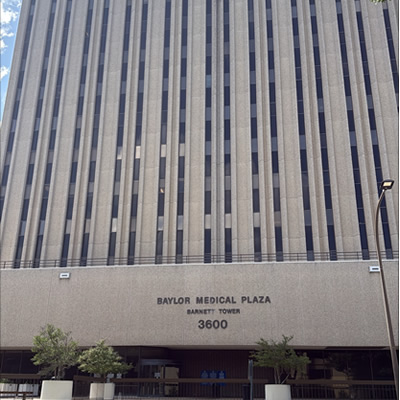
Baylor Scott & White Women's Health Group
3600 Gaston Ave Wadley Tower, Ste 1158, Dallas, TX, 75246
- Monday: 9:00 am - 5:00 pm
- Tuesday: 9:00 am - 5:00 pm
- Wednesday: 9:00 am - 5:00 pm
- Thursday: 9:00 am - 5:00 pm
- Friday: 9:00 am - 4:30 pm

Baylor University Medical Center, part of Baylor Scott & White Health
3500 Gaston Ave , Dallas, TX, 75246

Baylor Scott & White Medical Center - Irving
1901 N MacArthur Blvd , Irving, TX, 75061

Baylor Scott & White Medical Center - Grapevine
1650 W College St , Grapevine, TX, 76051

Baylor Scott & White Obstetrics & Gynecology - Grapevine
1631 Lancaster Dr Ste 370, Grapevine, TX, 76051
- Monday: 8:00 am - 5:00 pm
- Tuesday: 8:00 am - 5:00 pm
- Wednesday: 8:00 am - 5:00 pm
- Thursday: 8:00 am - 5:00 pm
- Friday: 8:00 am - 5:00 pm

Baylor Scott & White Women’s Health Specialists - Waxahachie
2460 N Interstate 35E Ste 165, Waxahachie, TX, 75165
- Monday: 8:00 am - 5:00 pm
- Tuesday: 8:00 am - 5:00 pm
- Wednesday: 8:00 am - 5:00 pm
- Thursday: 8:00 am - 5:00 pm
- Friday: 8:00 am - 5:00 pm

Baylor Scott & White Obstetrics & Gynecology - Waxahachie
2460 N Interstate 35E Ste 225, Waxahachie, TX, 75165
- Monday: 9:00 am - 4:30 pm
- Tuesday: 9:00 am - 4:30 pm
- Wednesday: 9:00 am - 4:30 pm
- Thursday: 9:00 am - 4:30 pm
- Friday: 9:00 am - 4:30 pm

Baylor Scott & White Medical Center - Waxahachie
2400 N Interstate 35E , Waxahachie, TX, 75165

Baylor Scott & White All Saints Medical Center - Fort Worth
1400 8th Ave , Fort Worth, TX, 76104

Baylor Scott & White Medical Center - Hillcrest
100 Hillcrest Medical Blvd , Waco, TX, 76712

Baylor Scott & White OB/GYN Clinic - Waco
120 Hillcrest Medical Blvd Office Building 2, Ste 201-2, Waco, TX, 76712
- Monday: 8:00 am - 5:00 pm
- Tuesday: 8:00 am - 5:00 pm
- Wednesday: 8:00 am - 5:00 pm
- Thursday: 8:00 am - 5:00 pm
- Friday: 8:00 am - 5:00 pm

Baylor Scott & White Clinic - College Station Rock Prairie
800 Scott and White Dr , College Station, TX, 77845
- Monday: 7:30 am - 5:00 pm
- Tuesday: 7:30 am - 5:00 pm
- Wednesday: 7:30 am - 5:00 pm
- Thursday: 7:30 am - 5:00 pm
- Friday: 7:30 am - 5:00 pm

Baylor Scott & White Medical Center - College Station
700 Scott and White Dr , College Station, TX, 77845
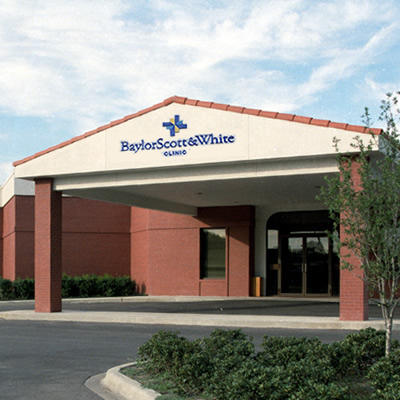
Baylor Scott & White Clinic - Santa Fe
1402 W Ave H , Temple, TX, 76504
- Monday: 8:00 am - 5:00 pm
- Tuesday: 8:00 am - 5:00 pm
- Wednesday: 8:00 am - 5:00 pm
- Thursday: 8:00 am - 5:00 pm
- Friday: 8:00 am - 5:00 pm
- Monday: 7:00 am - 4:30 pm
- Tuesday: 7:00 am - 4:30 pm
- Wednesday: 7:00 am - 4:30 pm
- Thursday: 7:00 am - 4:30 pm
- Friday: 7:00 am - 4:30 pm

Baylor Scott & White Medical Center - Temple
2401 S 31st St , Temple, TX, 76508
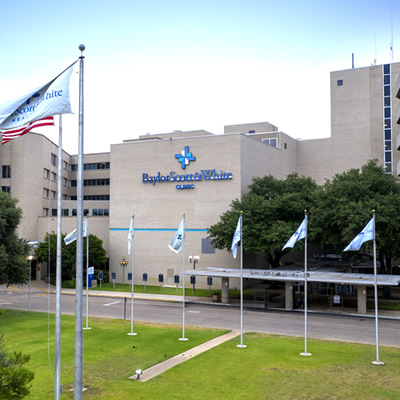
Baylor Scott & White Clinic - Temple
2401 S 31st St , Temple, TX, 76508
- Monday: 8:00 am - 5:00 pm
- Tuesday: 8:00 am - 5:00 pm
- Wednesday: 8:00 am - 5:00 pm
- Thursday: 8:00 am - 5:00 pm
- Friday: 8:00 am - 5:00 pm

Baylor Scott & White Clinic - Temple Professional Plaza II
1713 SW H K Dodgen Loop Bldg II, Ste 100, Temple, TX, 76502
- Monday: 8:00 am - 6:00 pm
- Tuesday: 8:00 am - 6:00 pm
- Wednesday: 8:00 am - 6:00 pm
- Thursday: 8:00 am - 6:00 pm
- Friday: 8:00 am - 12:00 pm

Baylor Scott & White Medical Center - Brenham
700 Medical Pkwy , Brenham, TX, 77833

Baylor Scott & White Clinic - Brenham Hwy 290
604 US 290 , Brenham, TX, 77833
- Monday: 7:00 am - 5:00 pm
- Tuesday: 7:00 am - 5:00 pm
- Wednesday: 7:00 am - 5:00 pm
- Thursday: 7:00 am - 7:00 pm
- Friday: 7:00 am - 5:00 pm
- Saturday: 8:00 am - 12:00 pm

Baylor Scott & White Specialty Clinic - Salado
213 Millcreek Dr Ste 190, Salado, TX, 76571
- Monday: 8:00 am - 5:00 pm
- Tuesday: 8:00 am - 5:00 pm
- Wednesday: 8:00 am - 5:00 pm
- Thursday: 8:00 am - 5:00 pm
- Friday: 8:00 am - 5:00 pm

Baylor Scott & White Specialty Clinic - Harker Heights
907 Mountain Lion Cir , Harker Heights, TX, 76548
- Monday: 8:00 am - 5:00 pm
- Tuesday: 8:00 am - 5:00 pm
- Wednesday: 8:00 am - 5:00 pm
- Thursday: 8:00 am - 5:00 pm
- Friday: 8:00 am - 5:00 pm

Baylor Scott & White Specialty Clinic - Killeen Hemingway
2405 S Clear Creek Rd , Killeen, TX, 76549
- Monday: 8:00 am - 5:00 pm
- Tuesday: 8:00 am - 5:00 pm
- Wednesday: 8:00 am - 5:00 pm
- Thursday: 8:00 am - 5:00 pm
- Friday: 8:00 am - 5:00 pm
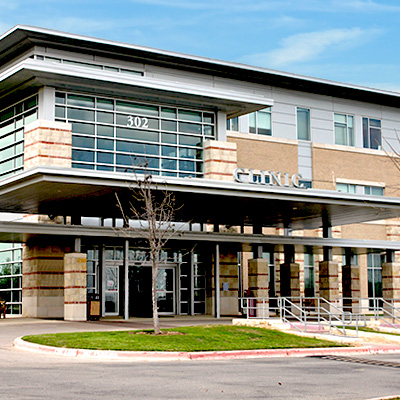
Baylor Scott & White Clinic - Round Rock 302 University
302 University Blvd , Round Rock, TX, 78665
- Monday: 8:00 am - 5:00 pm
- Tuesday: 8:00 am - 5:00 pm
- Wednesday: 8:00 am - 5:00 pm
- Thursday: 8:00 am - 5:00 pm
- Friday: 8:00 am - 5:00 pm

Baylor Scott & White Medical Center - Round Rock
300 University Blvd , Round Rock, TX, 78665

Baylor Scott & White Clinic - Pflugerville Medical Center (Building 1)
2600 E Pflugerville Pkwy Bldg 1, Ste 200, Pflugerville, TX, 78660
- Monday: 8:00 am - 5:00 pm
- Tuesday: 8:00 am - 5:00 pm
- Wednesday: 8:00 am - 5:00 pm
- Thursday: 8:00 am - 5:00 pm
- Friday: 8:00 am - 5:00 pm
- Monday: 7:30 am - 4:00 pm
- Tuesday: 7:30 am - 4:00 pm
- Wednesday: 7:30 am - 4:00 pm
- Thursday: 7:30 am - 4:00 pm
- Friday: 7:30 am - 4:00 pm

Baylor Scott & White Clinic - Pflugerville Medical Center Building 2
2600 E Pflugerville Pkwy Building 2, Pflugerville, TX, 78660
- Monday: 8:00 am - 5:00 pm
- Tuesday: 8:00 am - 5:00 pm
- Wednesday: 8:00 am - 5:00 pm
- Thursday: 8:00 am - 5:00 pm
- Friday: 8:00 am - 5:00 pm
- Monday: 8:00 am - 4:00 pm
- Tuesday: 8:00 am - 4:00 pm
- Wednesday: 8:00 am - 4:00 pm
- Thursday: 8:00 am - 4:00 pm
- Friday: 8:00 am - 4:00 pm

Baylor Scott & White Medical Center - Pflugerville (Building 1)
2600 E Pflugerville Pkwy Bldg 1, Ste 100, Pflugerville, TX, 78660
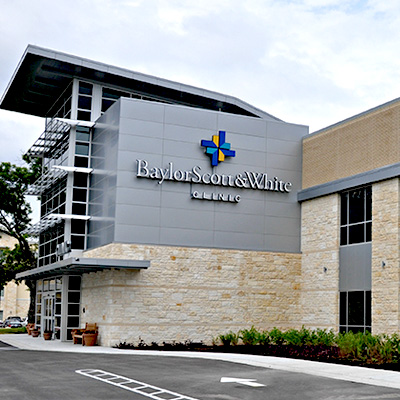
Baylor Scott & White Clinic - Cedar Park
910 E Whitestone Blvd , Cedar Park, TX, 78613
- Monday: 8:00 am - 5:00 pm
- Tuesday: 8:00 am - 5:00 pm
- Wednesday: 8:00 am - 5:00 pm
- Thursday: 8:00 am - 5:00 pm
- Friday: 8:00 am - 5:00 pm
- Monday: 7:00 am - 5:00 pm
- Tuesday: 7:00 am - 5:00 pm
- Wednesday: 7:00 am - 5:00 pm
- Thursday: 7:00 am - 5:00 pm
- Friday: 7:00 am - 5:00 pm
- Saturday: 9:00 am - 2:00 pm

Baylor Scott & White Clinic - Austin North Burnet
2608 Brockton Dr , Austin, TX, 78758
- Monday: 8:00 am - 5:00 pm
- Tuesday: 8:00 am - 5:00 pm
- Wednesday: 8:00 am - 5:00 pm
- Thursday: 8:00 am - 5:00 pm
- Friday: 8:00 am - 5:00 pm

Baylor Scott & White Medical Center - Austin
5245 W US Hwy 290 Service Rd , Austin, TX, 78735

Baylor Scott & White Medical Center - Lakeway
100 Medical Pkwy , Lakeway, TX, 78738
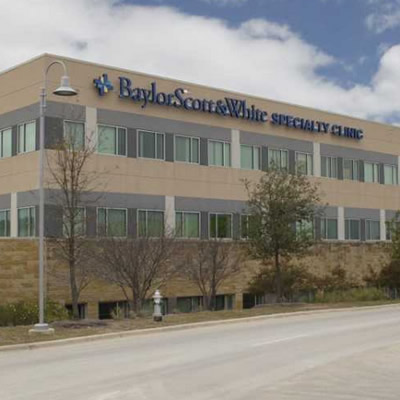
Baylor Scott & White Specialty Clinic - Lakeway
200 Medical Pkwy , Lakeway, TX, 78738
- Monday: 8:00 am - 5:00 pm
- Tuesday: 8:00 am - 5:00 pm
- Wednesday: 8:00 am - 5:00 pm
- Thursday: 8:00 am - 5:00 pm
- Friday: 8:00 am - 5:00 pm

Baylor Scott & White Medical Center - Buda
5330 Overpass Rd , Buda, TX, 78610

Baylor Scott & White Specialty Clinic - Marble Falls
800 W State Hwy 71 , Marble Falls, TX, 78654
- Monday: 8:00 am - 5:30 pm
- Tuesday: 8:00 am - 5:30 pm
- Wednesday: 8:00 am - 5:30 pm
- Thursday: 8:00 am - 5:30 pm
- Friday: 8:00 am - 5:30 pm

